
- Home
- India
- World
- Premium
- THE FEDERAL SPECIAL
- Analysis
- States
- Perspective
- Videos
- Sports
- Education
- Entertainment
- Elections
- Features
- Health
- Business
- Series
- In memoriam: Sheikh Mujibur Rahman
- Bishnoi's Men
- NEET TANGLE
- Economy Series
- Earth Day
- Kashmir’s Frozen Turbulence
- India@75
- The legend of Ramjanmabhoomi
- Liberalisation@30
- How to tame a dragon
- Celebrating biodiversity
- Farm Matters
- 50 days of solitude
- Bringing Migrants Home
- Budget 2020
- Jharkhand Votes
- The Federal Investigates
- The Federal Impact
- Vanishing Sand
- Gandhi @ 150
- Andhra Today
- Field report
- Operation Gulmarg
- Pandemic @1 Mn in India
- The Federal Year-End
- The Zero Year
- Science
- Brand studio
- Newsletter
- Elections 2024
- Events
- Home
- IndiaIndia
- World
- Analysis
- StatesStates
- PerspectivePerspective
- VideosVideos
- Sports
- Education
- Entertainment
- ElectionsElections
- Features
- Health
- BusinessBusiness
- Premium
- Loading...
Premium - Events
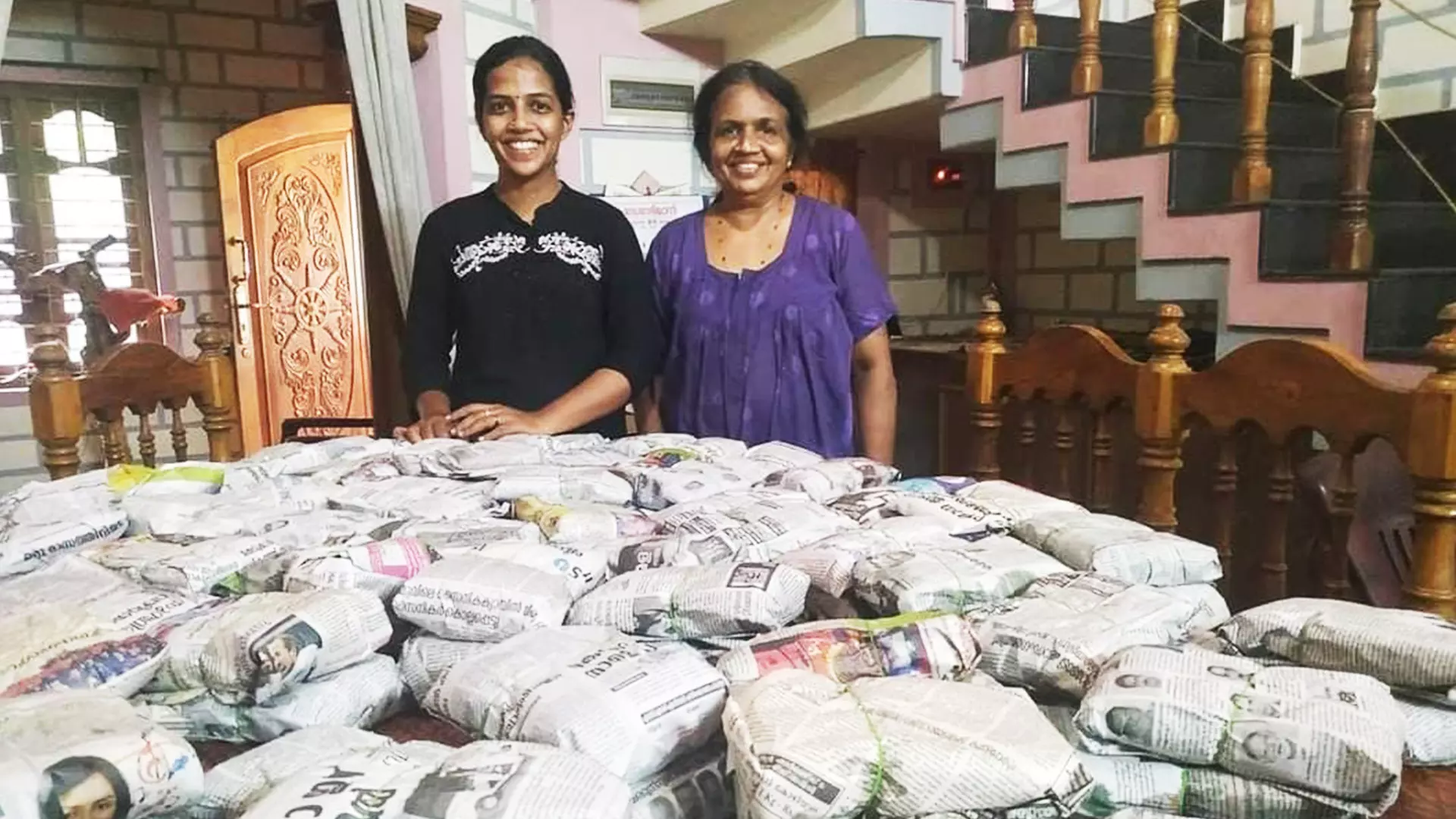
In August 2017, Greg Jaffe, a national reporter for The Washington Post and a member of the Pulitzer winning team of journalists, was in Kerala, working on a special story on Communist governance in the state. At that time, this reporter, a friend and fellow journalist, was accompanying Jaffe as the former pursued his own story.Jaffe was amazed to discover a lunch distribution programme at...
In August 2017, Greg Jaffe, a national reporter for The Washington Post and a member of the Pulitzer winning team of journalists, was in Kerala, working on a special story on Communist governance in the state. At that time, this reporter, a friend and fellow journalist, was accompanying Jaffe as the former pursued his own story.
Jaffe was amazed to discover a lunch distribution programme at the medical college hospital run by the Democratic Youth Federation of India (DYFI), which was in its early stages. DYFI volunteers were collecting food packets from households and providing them for free to needy patients and hospital visitors. When Jaffe asked AA Rahim, who was the state secretary of DYFI at the time (now serving as DYFI’s all-India president and a member of the Rajya Sabha), about how the programme was being funded, Rahim explained that they collected the food packets from ordinary people who were more than willing to contribute one or two.
Nevertheless, DYFI's initiative received nothing more than a passing reference in The Washington Post story. However, six years later, The Guardian carried a comprehensive feature about it in its global development section, titled ‘Caste out: How Kerala's food parcel scheme addresses poverty and discrimination’ giving it a global reach.
Started in 2016, the programme Hridayapoorvam (With all my heart) has spread to several public hospitals in Kerala where the DYFI activists distribute free lunch packets on a daily basis. They have established a highly reliable system, delegating the responsibility to their regional committees to gather food from their designated areas and transport it to medical college hospitals situated in the district headquarters. On a daily basis, an estimated 40,000 to 50,000 food packets are delivered to various hospitals across the state. The uniqueness of this initiative is that DYFI is not soliciting funds from the public to run the initiative. Each day, volunteers from a specific unit visit households and collect meals that are packaged in eco-friendly materials such as plantain leaves. The collected food is then transported to the hospital in a vehicle and distributed to those in need every afternoon.
“In 2014-15, DYFI local units in Vilappil and Mannanthala regions of Thiruvananthapuram were actively collecting food packets for the residents of a few local palliative care facilities. The inspiration for our food distribution project came from these comrades of ours. That’s how we started the initiative in 2016 in Thiruvananthapuram medical college, with an aim to ensure that no one at the hospital goes hungry,” Rahim told The Federal.
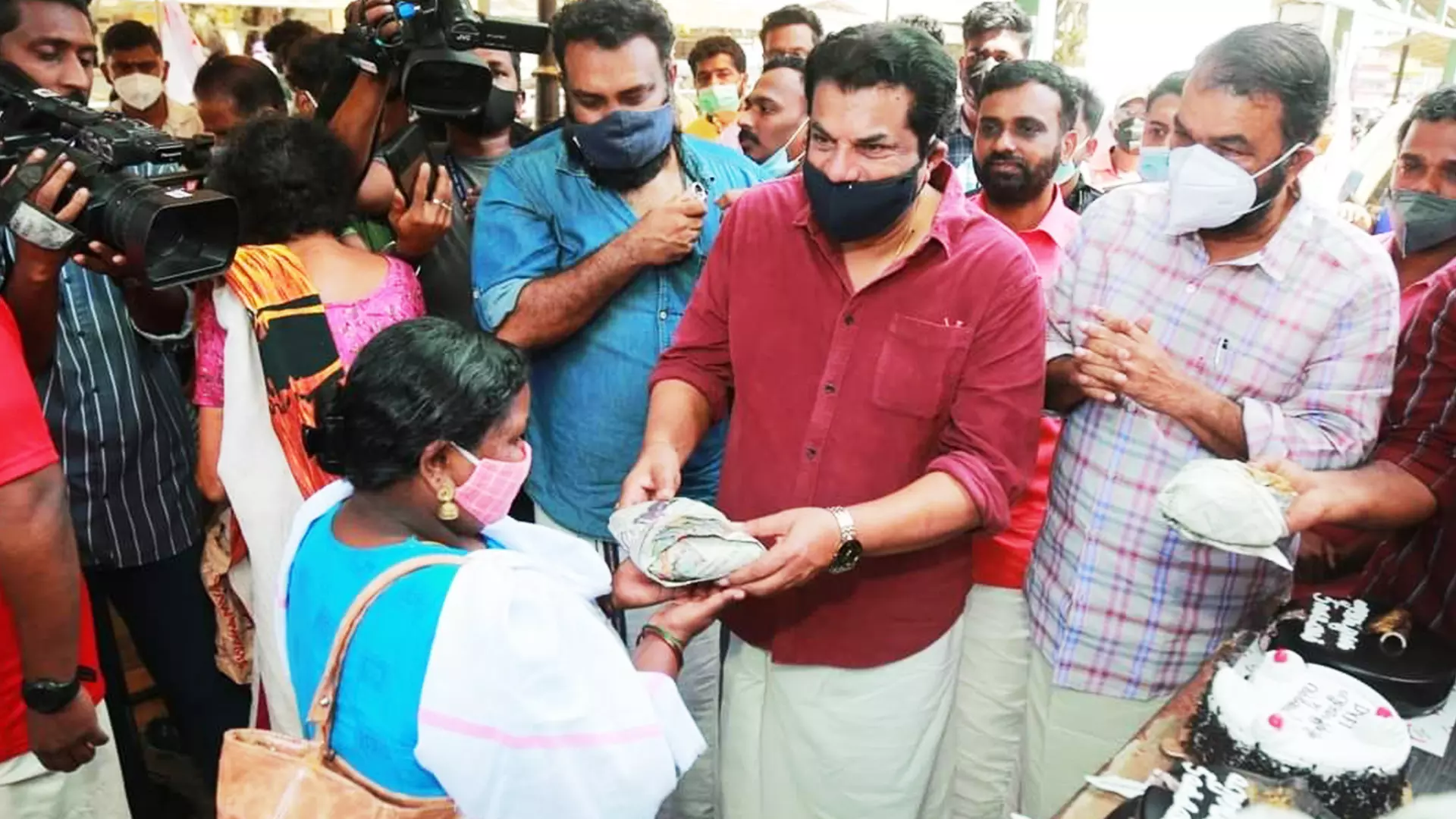
Actor-turned-legislator M Mukesh (red shirt) distributes food packets along with Kerala minister V Sivankutty.
“Originally, the plan was to provide meals to 300-400 individuals daily. However, the response to the initiative has been so overwhelming that we could collect around 800-1,000 packets on Day One, but the number of the needy was even bigger. With our organisational strength, now we can distribute around 40,000-50,000 food packets daily in several hospitals across the state,” added Rahim.
“Our district comprises over 200 regional committees, each consisting of 10 to 15 units. Each regional committee is tasked with supplying lunch packets for one day twice a year, and a single unit of DYFI is responsible for collecting approximately 500 packets,” said Erin Antony, a district committee member of the DYFI in Thrissur. “Our comrades proactively visit households in advance to request for these packets and follow up once more before collecting them on the designated day.”
“Initially we used to print pamphlets and distribute them at houses, now with the programme becoming hugely popular, the people know about it and us. They are more than happy to contribute. Some families even tend to give 8-10 packets, but we discourage bulk offerings. We want them to share the same food they cook for themselves, that makes this campaign more humane,” added Erin.
Sudharma KS, a school teacher in Thrissur, wholeheartedly supports the project. Typically, a vegetarian who doesn’t prepare meat or fish dishes, she gladly buys fish or meat when requested by DYFI activists to make the meals extra special.
“Giving food for this project brings me immense pleasure. It’s a wonderful endeavour. These boys and girls are a Godsend for many who would otherwise go hungry in hospitals. I have contributed food packets four or five times so far, each time preparing four or five packets, including at least one omelette or fish fry as a special dish, marking it on the packet,” Sudharma told The Federal.
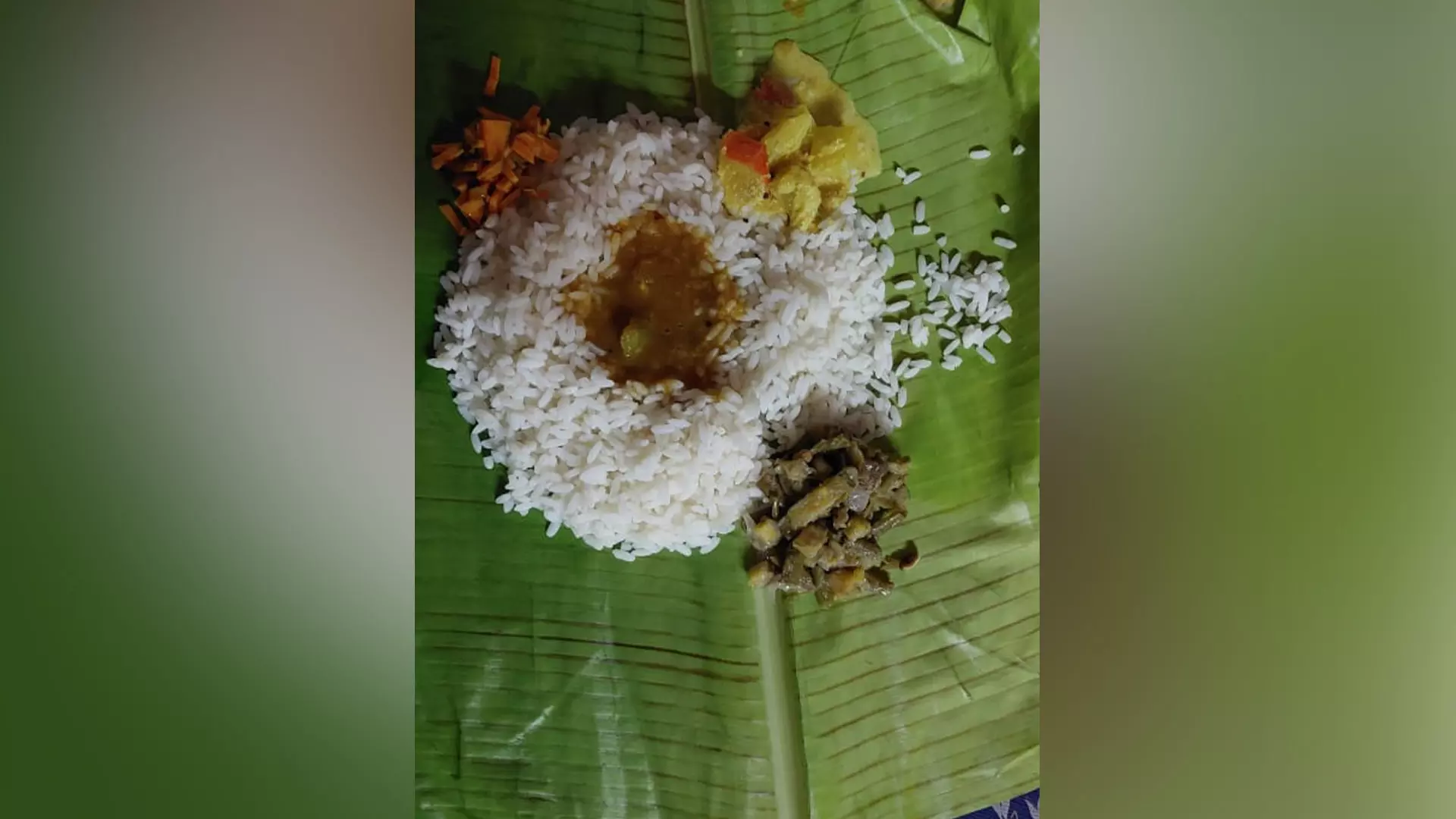
Meals are packaged in eco-friendly materials such as plantain leaves.
Nafeesath Farzana, a 33-year-old homemaker from Chavakkad, has a different narrative to share. Her family typically consumes meat, but when it comes to preparing food packets for DYFI, she opts for a vegetarian menu. “There are people who do not consume meat or fish, so we should consider them as well,” she explains. “Whenever these activists request it, I usually prepare five vegetarian lunches each time. While I may not be a sympathiser of the Communist Party, I acknowledge the admirable work these individuals are doing,” said Farzana, whose husband is a businessman and operates from Dubai.
Sujith Chandran, a seasoned television journalist in Kerala, used to schedule a day off and return to his hometown of Kozhuvalloor, Thiruvalla, when it was the turn of the DYFI unit of his area to arrange the food. “The impressive work carried out by them caught my attention. Although I no longer maintain an active affiliation with the organisation since becoming a professional journalist, I felt compelled to participate in this effort. Typically, I join them to collect the packets and send them to Alappuzha medical college,” Sujith said.
Currently, Sujith serves as the news editor for the Malayalam news outlet, The Fourth. “What makes this effort stand out, as far as the organisation is concerned, is that they are visiting houses at least twice for this, enabling them to keep a very healthy relationship with the masses, and the rural people are very cooperative,” added Sujith.
In January 2023, an apology note kept inside a food packet distributed by the DYFI activists in Kozhikode went viral on social media.
“Dear brother/ sister/ mother/ father or whoever is in receipt of this packet - My mother is not at home. I do not know how to cook properly; I prepared this in a hurry as I have to go to school after this. This might not be as tasty, but please excuse me,” read the letter.
Rajesh Monji, a college teacher who was at the hospital as a bystander, got the food packet and posted a heartwarming reply note on Facebook: “My child, the food packet you sent was very tasty. More than that, each grain was full of love.”
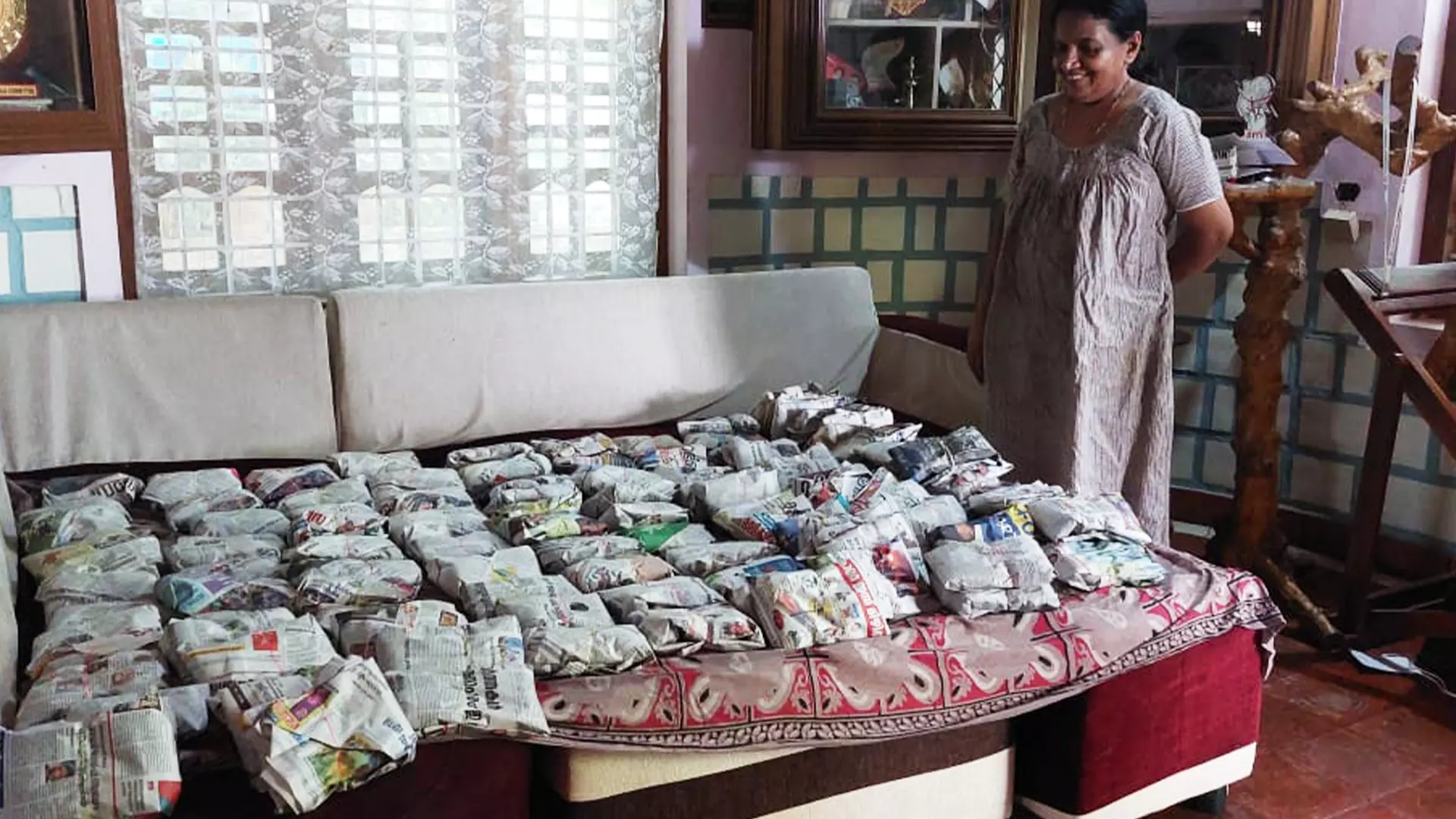
People say giving food for the project brings them immense pleasure.
“This is precisely the objective DYFI had in mind,” stated Rahim.Evoking compassion among people is a key objective of the initiative and that is why instead of setting up a community kitchen, DYFI has been trying to collect food from homes. “In this way, every food packet represents a family’s care for others, transcending religious, caste, class, creed, or colour barriers. In that sense, it stands as one of the most inclusive and secular initiatives,” adds Rahim.
Kunhumol, a 70-year-old agricultural labourer from Palakkad district, along with her two grandchildren, aged 2 and 4, has been depending on the DYFI's complimentary meals for almost a month. This situation arose because her daughter, who is a single mother, had to be hospitalised in Thrissur due to abdominal surgery and subsequent complications.
“These boys give us food daily and we keep a portion from it for our dinner. I do not have anyone else back home to look after the kids, so I was keeping them here too. Without this help from those partymen, we would not have survived. They not only fed us but they also arranged the blood and everything that was needed for my daughter’s surgery,” says the thankful septuagenarian, in a tired voice.
Santhosh PN, the volunteer who coordinates the mid-day meal programme in Thrissur medical college hospital has a bunch of similar stories to tell.
“This family isn’t the only one that depends on our assistance. There are many other people in need. You should spend some time in a public hospital to understand the comforts you have in your middle-class life,” Santhosh said. “Here, we don’t just distribute food. Our dedicated volunteers also regularly donate blood at the hospital’s blood bank. We contribute 20-30 bags of blood to this hospital every day.”
“We’ve been running the blood donation campaign for several years. However, when we initiated this food distribution programme, we began to have volunteers coming to the hospital daily. That’s when we realised we could also expand our blood donation campaign,” said Erin Antony of DYFI.
Despite having political differences, the DYFI activists have a healthy relationship with other organisations that do charity activity like theirs. There are several religious organisations and outfits like Seva Bharati which are engaged in similar work, but on a much smaller scale.
“In the midst of the Covid-19 pandemic, the Youth Congress also launched a similar project, but they were unable to keep it going. They set up a centralised kitchen and raised funds to prepare food, but it came to a halt after just a month due to a lack of funds,” said Erin.
DYFI, on its part, had discouraged taking funds or food bought from outside for various reasons. “Raising money and making food might sound simple, but our goal was to get regular folks like you and me to join in this good deed. Plus, by doing this, we also established a strong connection with the community,” said Rahim.
Even their political rivals have praised DYFI’s social welfare efforts. Some months back, former leader of opposition Ramesh Chennithala, speaking to Youth Congress workers, made significant waves in Kerala. In his speech, he encouraged the organisation’s youth wing to take a cue from DYFI activists.
“We started ‘Youth Care’ during the Covid-19 pandemic. However, we failed to provide the ‘care’ we envisioned. At the same time, DYFI conducted various activities during the period. They have been undertaking a noon meal scheme at medical colleges for the past several years,” pointed out Chennithala.
“It is true that they are doing commendable work, but they have the backing of the ruling government,” said a Youth Congress worker in Thrissur. “If we start doing the same, it won’t be easy for us. For starters, the authorities might not give necessary permissions. We could have thought of this kind of a project when we were in power,” added the leader.
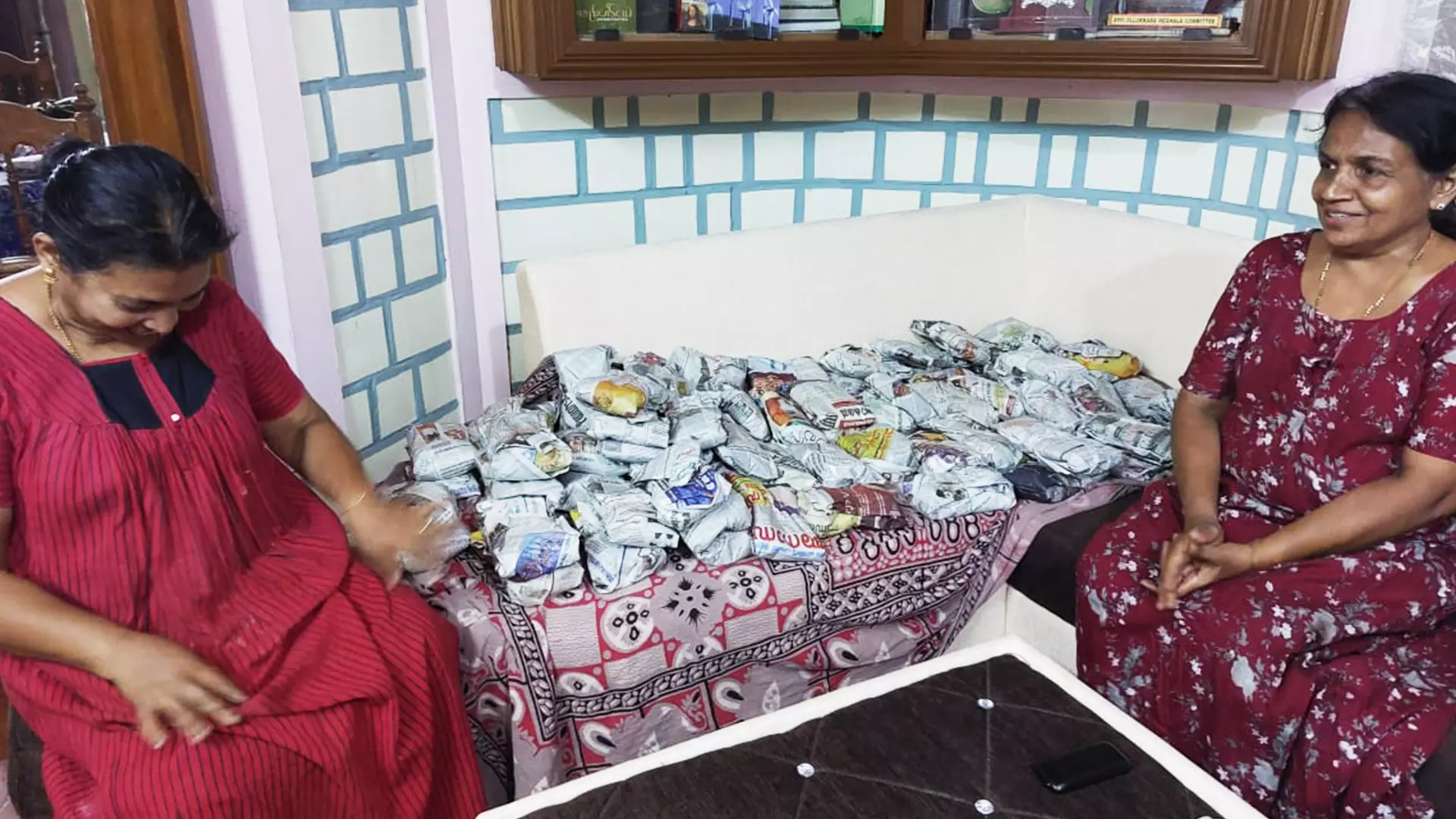
Women sit with the food prepared for the needy before DYFI volunteers pick it up.
The DYFI leadership asserts that they are not partial in executing the programme. They are open to receiving food donations from anyone and will not discriminate based on their political party affiliations.
“In our village, we don’t have the best relationship with our political opponents. So, they usually don’t participate in our programmes. Once, I encountered a woman from a Congress-affiliated family at the hospital who was hesitant to accept a food packet from us, despite her urgent need. We encouraged her to take one, and as a result, her family also began contributing food packets to our cause,” said Santhosh PN.
Barring a few places where violent clashes between the BJP/RSS and CPI(M) cadres are a norm, the programme is well accepted across party lines.
“This is not just a charity but an all-inclusive political act, with a human touch,” says Rahim who vows to expand the programme to more hospitals across the state of Kerala.

